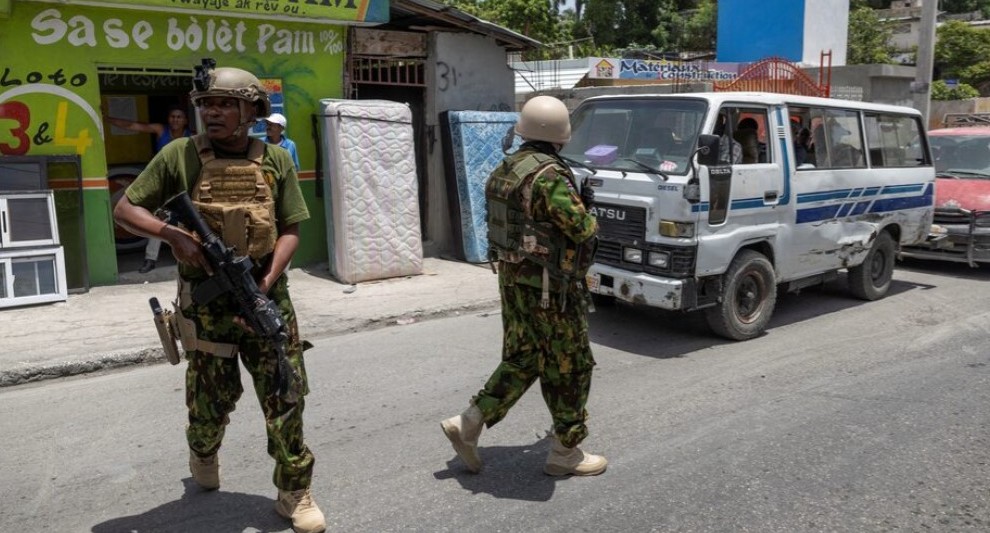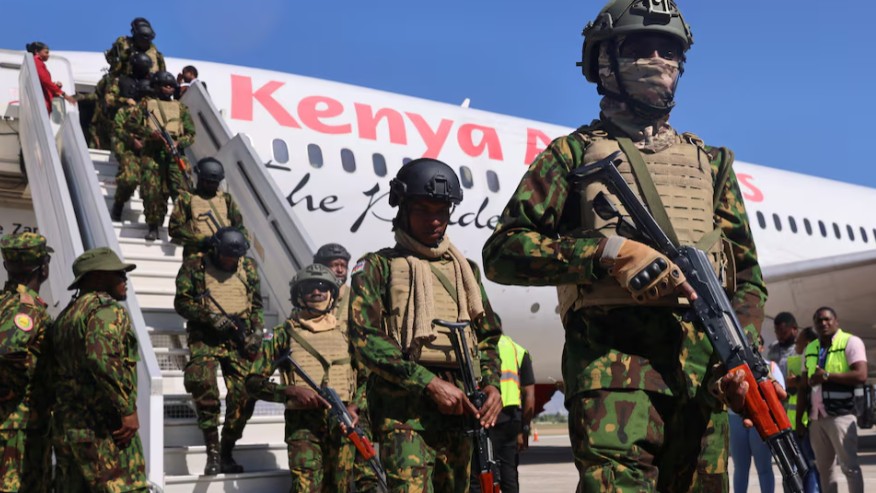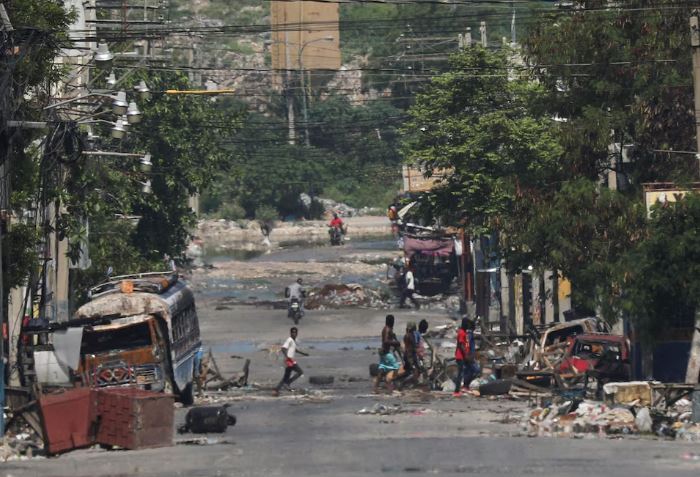One year on: Kenyan-led Haiti Mission faces uncertain future amid logistical and funding crises

The report highlights that the mission is caught between political realignment in the United States and paralysis in international aid efforts, leaving it in a fragile and unsustainable position.
The future of the Multinational Security Support (MSS) mission in Haiti remains uncertain as it approaches the first anniversary of its deployment in June last year.
A contingent of 400 Kenyan police officers is expected to return to Nairobi in June, marking the end of their one-year contract with the mission. Meanwhile, approximately 261 officers designated for deployment remain stranded in Nairobi due to limited space and a lack of technical and financial support.
More To Read
- Record cocaine seizure in Haitian waters underlines country’s ‘pivotal’ trafficking role
- Cases of police misconduct rises despite overall drop in crime -Report
- Haiti security forces say era of unchecked gang power is over as crackdown intensifies
- Haiti, Panama and Curaçao seal historic World Cup spots
- Kenya’s criminal gangs trace back to independence era, NCIC says
- NCIC warns of criminal gangs using social media to recruit, mobilise
An analysis by the Global Initiative Against Transnational Organised Crime (GI-TOC) suggests that, combined with the deteriorating situation in Haiti, these factors signal a mission that may be nearing its end.
“Gangs have increased their power and territorial control, and the mission still faces critical challenges in terms of funding, institutional articulation and coordination with local authorities, as well as a possible resurgence of political opposition in Nairobi,” the organisation states in its report, Haiti on the Brink as Kenya’s Aid Mission Remains Paralysed.
The report highlights that the mission is caught between political realignment in the United States and paralysis in international aid efforts, leaving it in a fragile and unsustainable position.
“While a peacekeeping mission plan under the auspices of the Organisation of American States is under discussion, the Kenyan-led mission remains in limbo. In addition to urgent financial support, a strategic redesign is needed to finally establish the operational and tactical foundations of the mission, re-evaluate its collaboration with the Haitian National Police (HNP), and enable it to adapt to a worsening security crisis,” the report adds.
 Kenyan police officers on a peacekeeping mission disembark from a plane in Port-au-Prince, Haiti, on January 18, 2025. (Photo: REUTERS/Ralph Tedy Erol)
Kenyan police officers on a peacekeeping mission disembark from a plane in Port-au-Prince, Haiti, on January 18, 2025. (Photo: REUTERS/Ralph Tedy Erol)
The MSS and HNP continue to face difficulties in coordination, information sharing, and equipment capacity, challenges that are amplified by the increasing power and sophistication of criminal gangs.
“While the gangs are functioning more and more like armed militias, the MSS is in danger of being abandoned,” the report further warns.
The mission has also yet to reach its intended strength of 2,500 personnel, as many troop pledges remain unfulfilled.
“Other contributing countries had pledged to bring the total to 2,500, but by May 2025, just 40 per cent of that figure had been realised,” the report notes.
At the same time, logistical struggles persist. The MSS base, located on the tarmac of Toussaint Louverture International Airport in Port-au-Prince, cannot currently be expanded, thus blocking further deployments. A lack of adequate weapons and armoured personnel carriers also hampers preparedness against heavily armed gangs.
GI-TOC's research further indicates that the MSS lacked initial tactical and operational planning support at deployment — a problem that has yet to be resolved.
“The result is that the design of the mission no longer reflects the reality on the ground.”
Funding remains a critical challenge. The United States, the mission's primary financier, has stepped back, urging other international stakeholders to honour their pledges ahead of fast-approaching deadlines. This includes urgent payments, such as salaries for around 1,000 international staff and a forthcoming $200 million payment to the service provider managing the operational base.
“The UN, which manages the trust fund for Haiti, has warned that without ‘timely, decisive and concrete international assistance’, the MSS will be left in limbo,” the report states.
 Armed gang members walk through the streets near the presidential palace, in Port-au-Prince, Haiti April 23, 2024. (Photo: REUTERS/Ralph Tedy Erol)
Armed gang members walk through the streets near the presidential palace, in Port-au-Prince, Haiti April 23, 2024. (Photo: REUTERS/Ralph Tedy Erol)
Kenya has publicly maintained a cautiously optimistic stance, indicating that the mission has enough funds to operate until September.
The renewal of the mission's mandate is set to be discussed in October. Nairobi insists it can manage the conflict with additional international support, despite acknowledging that the mission is currently operating at a "suboptimal level".
“Nairobi is currently planning a delegation to Haiti and neighbouring countries that had initially pledged to contribute police officers to the troubled nation,” the report adds.
Prime Cabinet Secretary Musalia Mudavadi has already visited the Dominican Republic to prepare the ground for the delegation and has held talks with US Secretary of State Marco Rubio regarding the mission.
However, the report notes that the abrupt cancellation in April of Secretary Rubio’s planned visit to Nairobi, announced just hours after President William Ruto departed for a state visit to China, has not improved diplomatic dynamics. Some observers view this as a sign of strained relations between Kenya and the US.
“The mission needs to be placed at the centre of the strategic agenda, with a focus on tactical and operational support as well as material assistance. Without this, the MSS faces imminent failure — a missed opportunity and a catastrophic abandonment of the Haitian people. If the MSS mission in Haiti fails, the responsibility will not lie with Kenya alone, but will reflect a wider failure of the international community,” the report concludes.
Top Stories Today












































